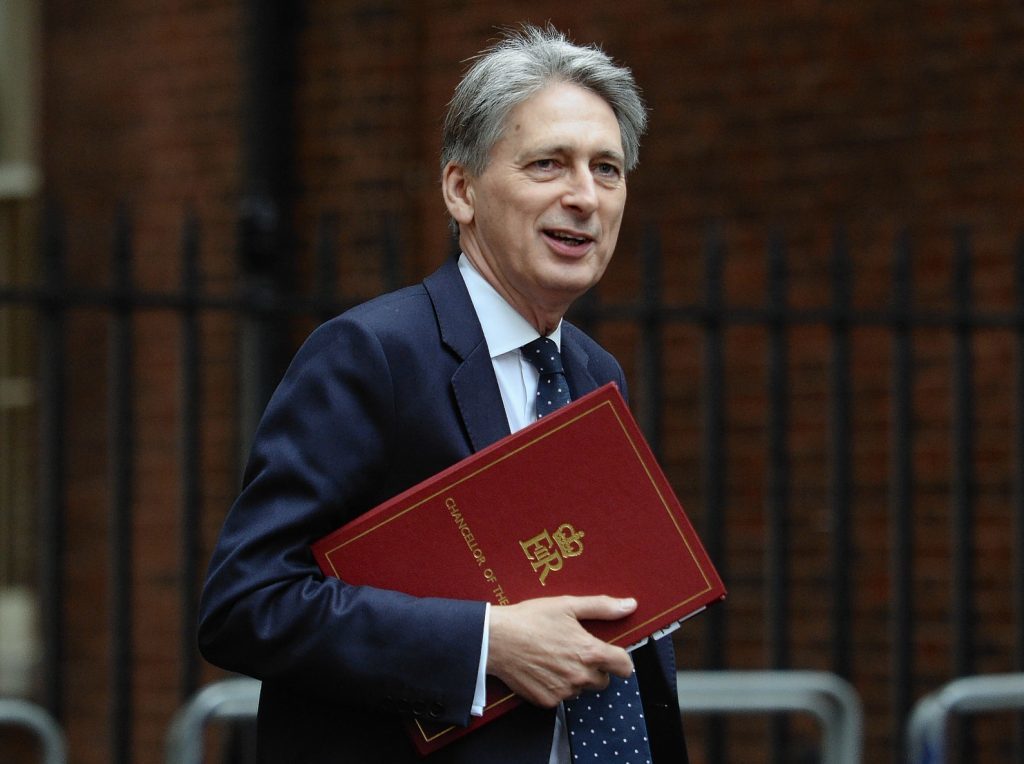
We’ll be bringing you all the latest from today’s Autumn Statement.
You can also follow our updates on Twitter by Guest Editor Derek Leith at @energyvoicenews.
In his Autumn Statement today, Mr Hammond will unveil a package of support to help people who are “just about managing” – known in Whitehall as the “Jams“ who Theresa May has identified as a priority for support.
But his statement will also be the first chance to address the economic uncertainty facing the country as a result of the Brexit process.
Writing on Twitter, Mr Hammond said his focus was on “preparing and supporting” the economy for the future.
The Autumn Statement has begun – the Chancellor says he will continue to manage the country’s economy in the same way as his predecessor George Osborne.
The OBR (Office of Budget Responsibility) has forecast growth to be 2.1% by 2021 – higher than its estimate in March.
It is a higher forecast than countries including Germany, France and Italy.
The OBR (Office for Budget Resonsibility) has noted a higher degree of uncertainty as a result of Brexit.
He added the Brexit vote underlined the “urgent” need to tackle the UK economy’s long-term weaknesses as the Budget watchdog slashed growth forecasts for next year.
Hammond revealed the OBR had downgraded growth forecasts for next year from 2.2% to 1.4% as a result of the uncertainty caused by the Brexit vote and higher inflation due to the fall in sterling.
Mr Hammond told MPs: “That’s slower, of course, than we would wish, but still equivalent to the IMF’s forecast for Germany, and higher than the forecast for growth in many of our European neighbours, including France and Italy.”
The Chancellor said the June 23 vote to leave the European Union will “change the course of Britain’s history” and “makes more urgent than ever the need to tackle our economy’s long-term weaknesses” including the productivity gap.
He said he is publishing a new charter for fiscal responsibility with three new rules.
The Government has no plans for further welfare measures in this parliament.
Guest Editor Derek Leith has tweeted: Chancellor states his ambition for UK is to be ‘resilient & match fit’ for #Brexit
#AutumnStatement
Hammond has also said net debt to be falling as percentage of GDP by next Parliament.
He says too many British workers are working longer hours, for less pay than other European counterparts.
Public investment is now higher, and a new national productivity fund is to be created to support infrastructure.
There will be greater investment in research and development.
The government said it expects to double annual capital spending on housing.
£1.1billion is to be invested in English transport networks.
Funding of £110 million for East West Rail and commitment to deliver Oxford to Cambridge Expressway.
He said the UK will need “world-class” digital infrastructure to underpin the UK’s transport needs.
£1billion will be invested.
Devolution is said to be “at the heart” of the British Government.
Negotiations are on course with Stirling for a city deal.
Aberdeen’s City Region Deal was confirmed earlier this year.
Hammond said he has “deliberately avoided” making his statement into a long-list of projects.
He said “we have more work to do” to decrease the deficit.
Funding has been granted to the Ministry of Justice to increase the number of prison officers.
£1billion of savings to be reinvested in the years 2019 and 2020.
He said “despite fiscal pressures” promises and pledges to overseas aid and to the country’s pensioners will continue to be met.
Hammand said his priority is to ensure the UK remains the “number one” destination for business.
The government will stick to the business road map outline in March.
Commitments made to the oil and gas sector in March will be met.
To refresh, commitments made earlier this year included a reduction to the supplementary tax from 20% to 10% and Petroleum Revenue Tax (PRT) was “abolished”.
There will be no fuel duty rise for the seventh consecutive year.
It is estimated to save car drivers around £130 a year and save van drivers £350 a year.
The Autumn Statement is also set to be abolished – this is the last official one.
The UK is the only major advanced economy to make major changes to the tax system twice a year.
Recommended for you
